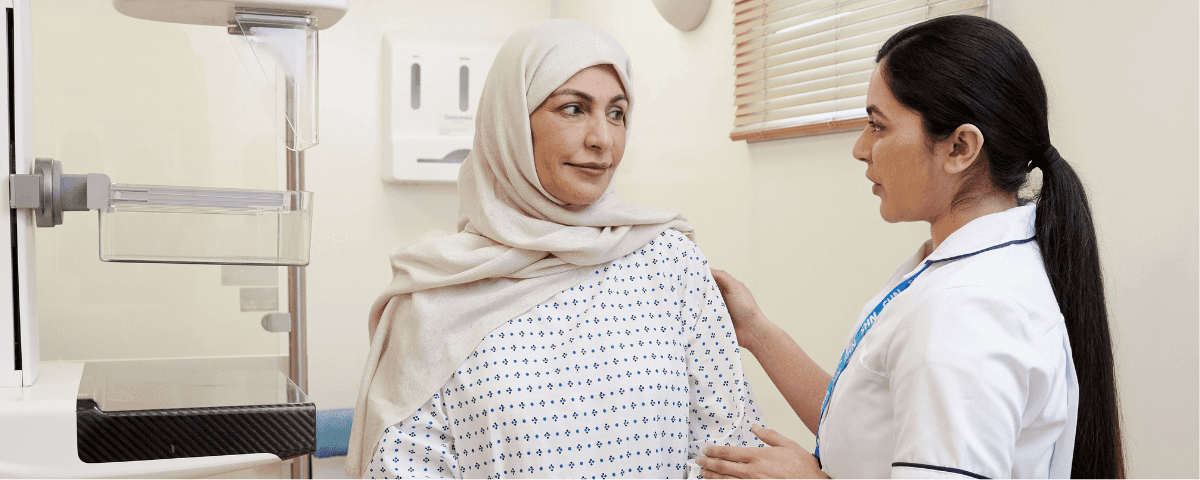
Last reviewed: 22 November 2024
Last reviewed: 22 November 2024
Breast cancer is the most common cancer in the UK. 1 in 7 women will be diagnosed with breast cancer in their lifetime, which is the second most common cause of cancer death for women
.Breast screening aims to detect breast cancer earlier when survival is more likely. Evidence suggests that breast screening prevents around 1,300 deaths each year in the UK
. However, breast screening uptake remains below the achievable performance threshold in all UK nations:England: 65% (2022–23)
Northern Ireland: 74% (2022–23)
Scotland: 76% (2022–23)
Wales: 69% (2019–20)
We’re staying up to date with key interventions that health systems could implement to support informed uptake and optimise screening. In addition, we provide practical tips to ensure health professionals feel confident discussing breast screening and addressing health inequalities.
Read our breast screening insights pages below to find out more.
Information to support conversations with the public to support informed choice to participate.

Interventions that address barriers to accessing breast screening services and inequalities in uptake.

Potential changes to breast screening with information on the latest research, evidence and innovation.
If you’re a member of the public, find out what breast screening is, who’s eligible and how to get tested. Health professionals may find it helpful to share this link with their patients to support their informed choice.
Read public information on breast screeningBreast cancer statistics | Cancer Research UK. (accessed Feb 2024).
Breast screening | Cancer Research UK. (accessed Jun 2024).
Public Health Wales. Screening Equity Strategy 2022-2025
Stay up-to-date with the latest cancer research information.